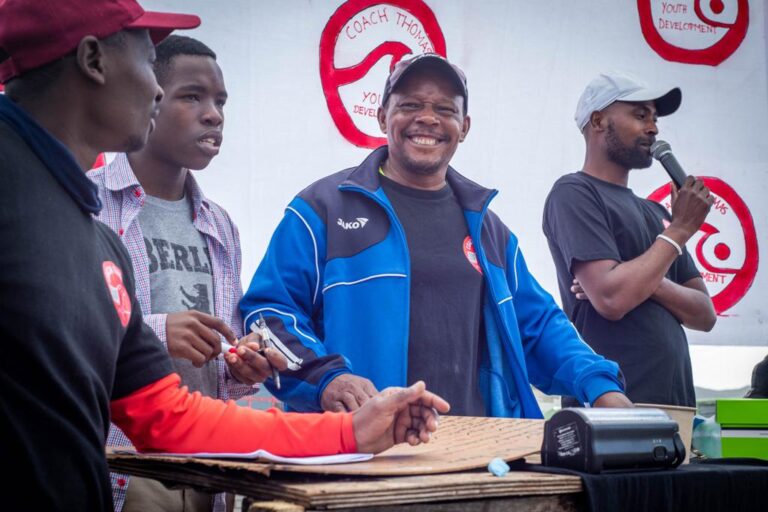Our Origins
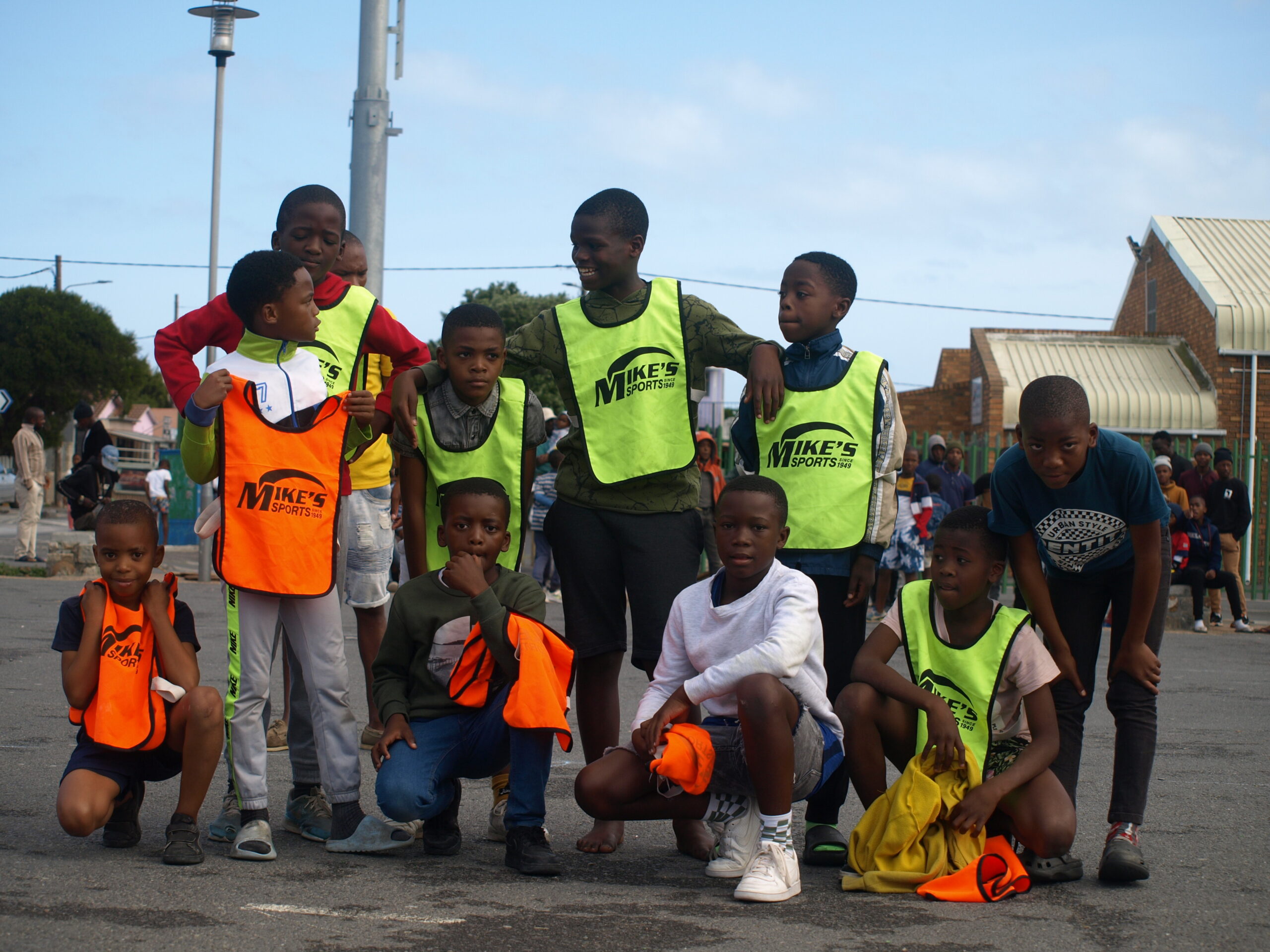
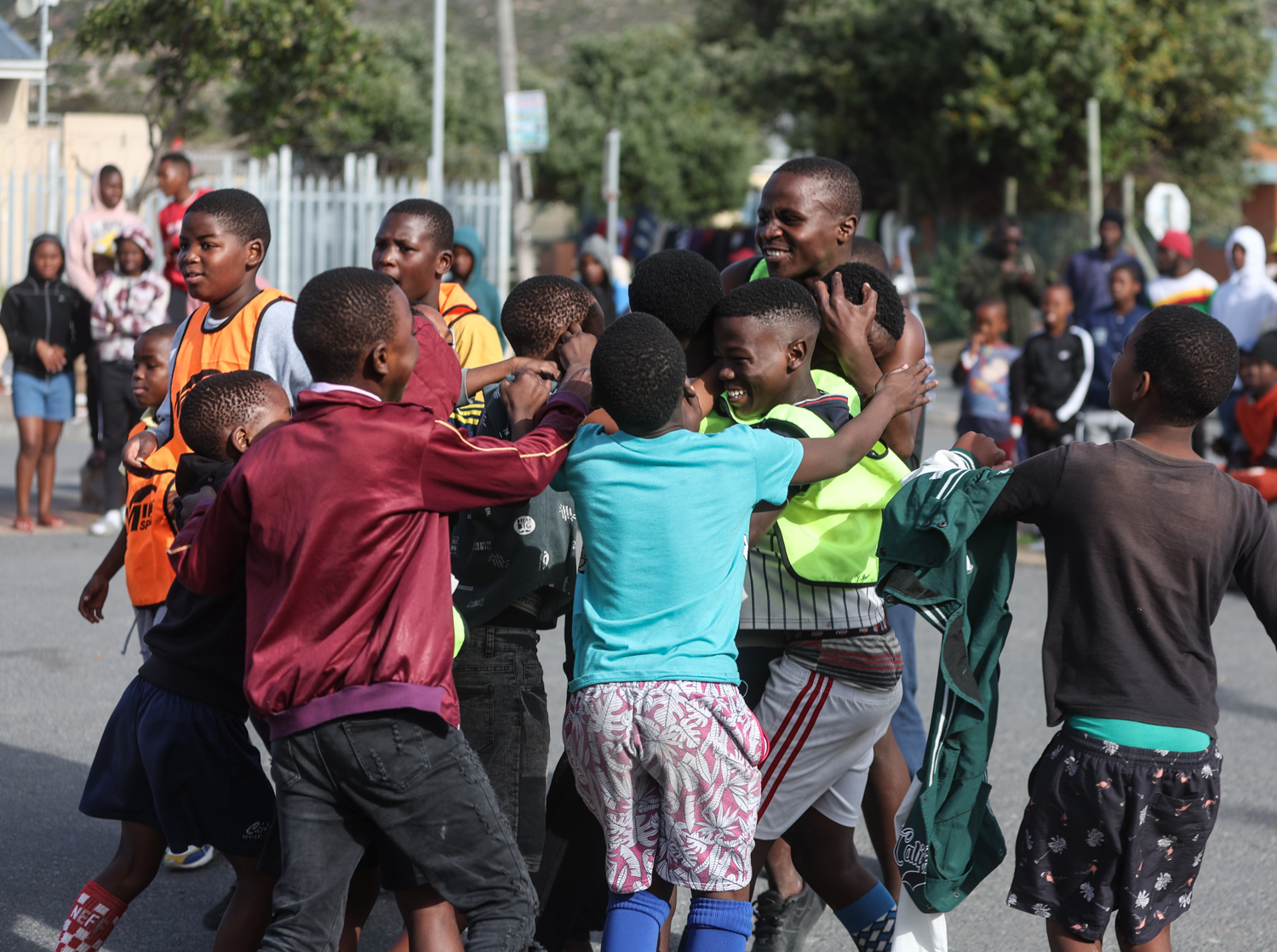
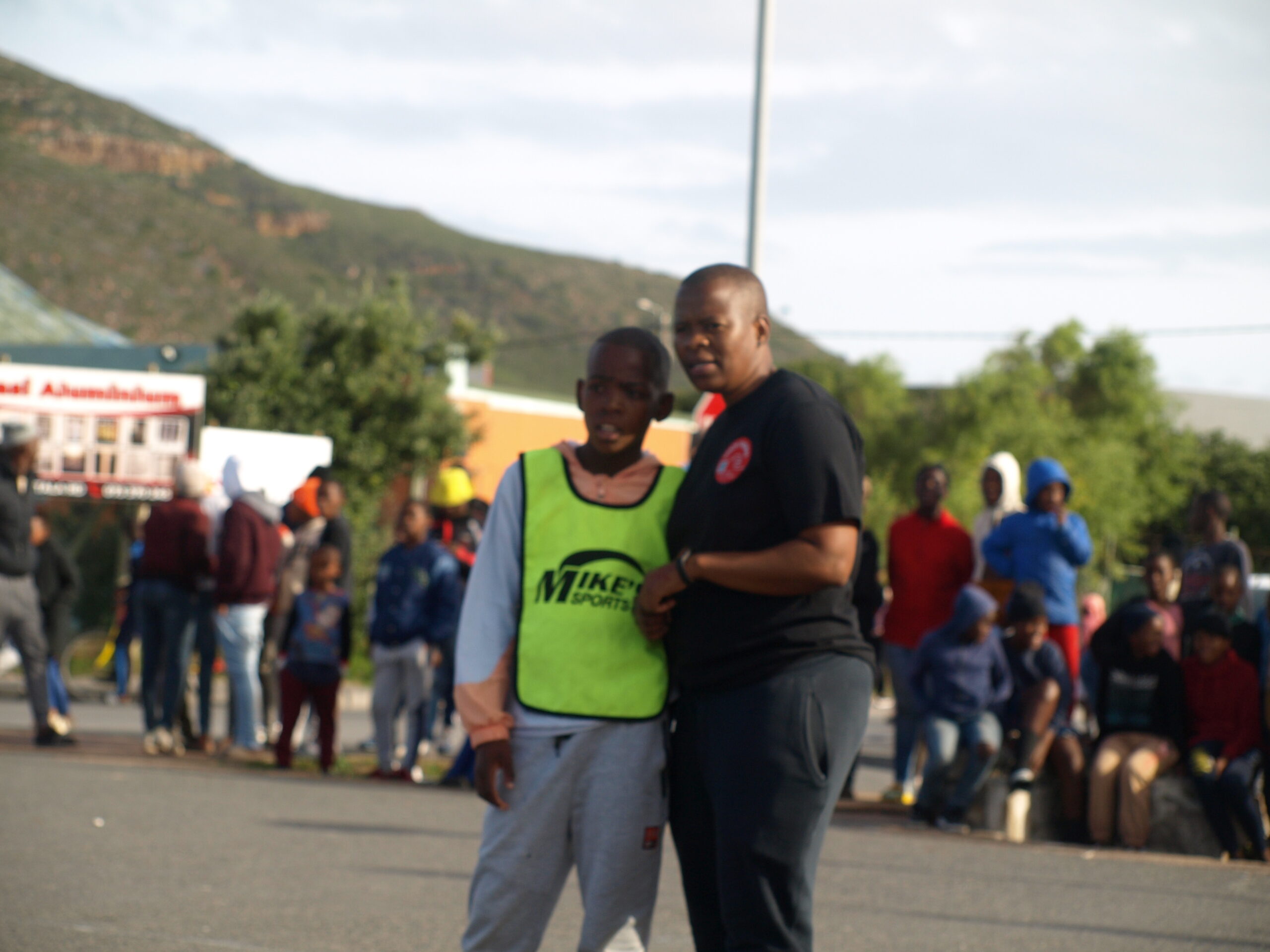
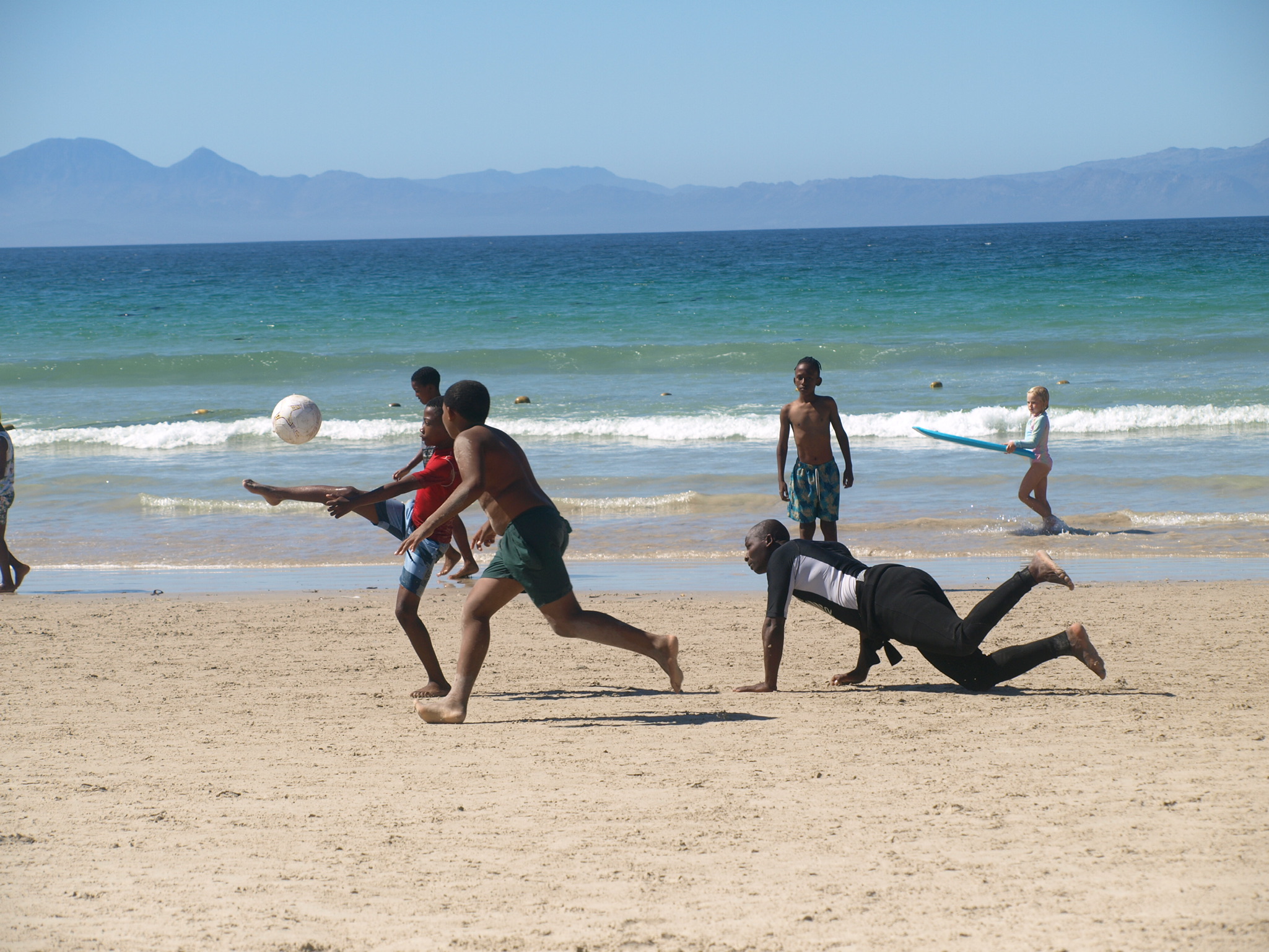
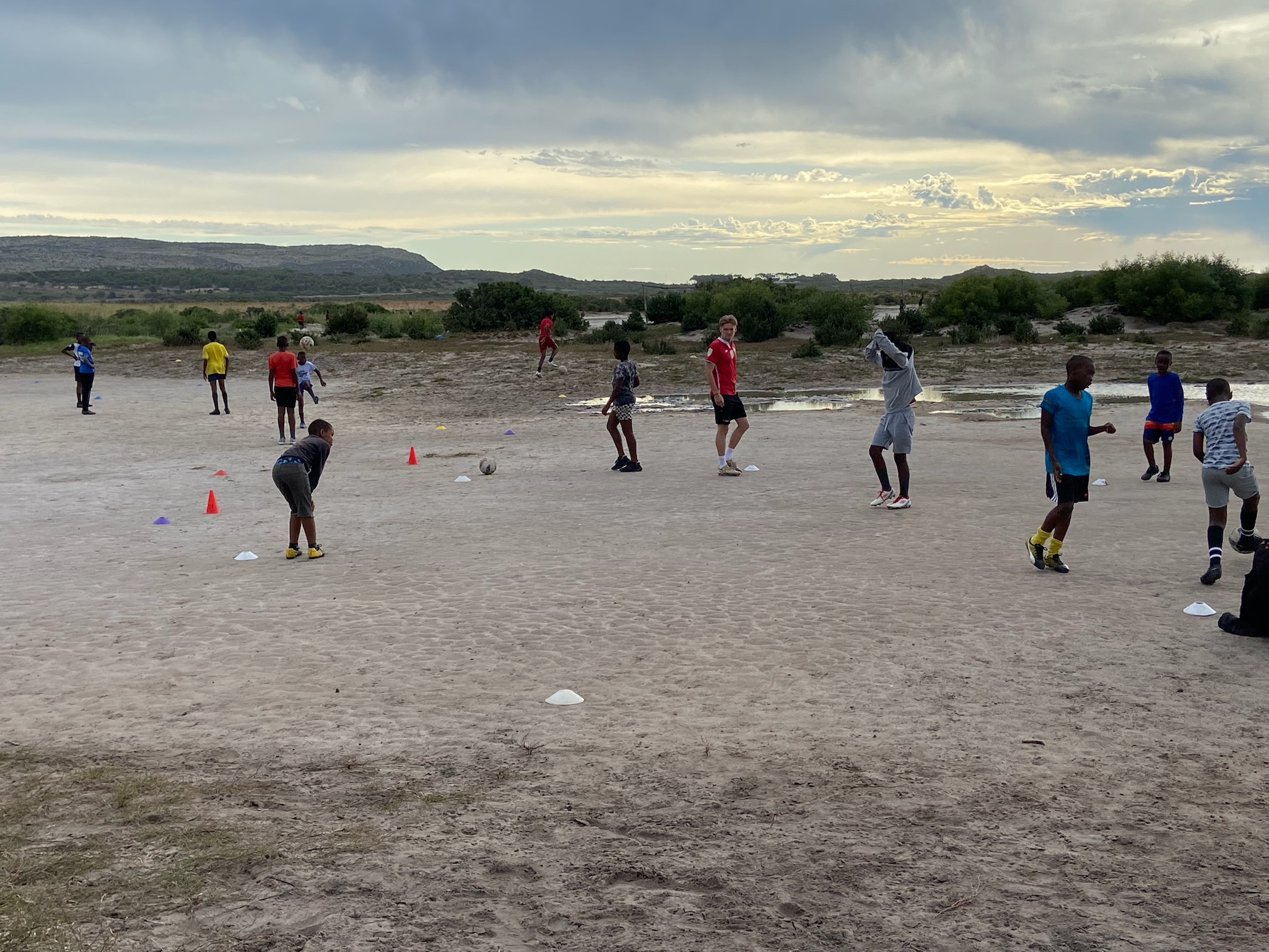
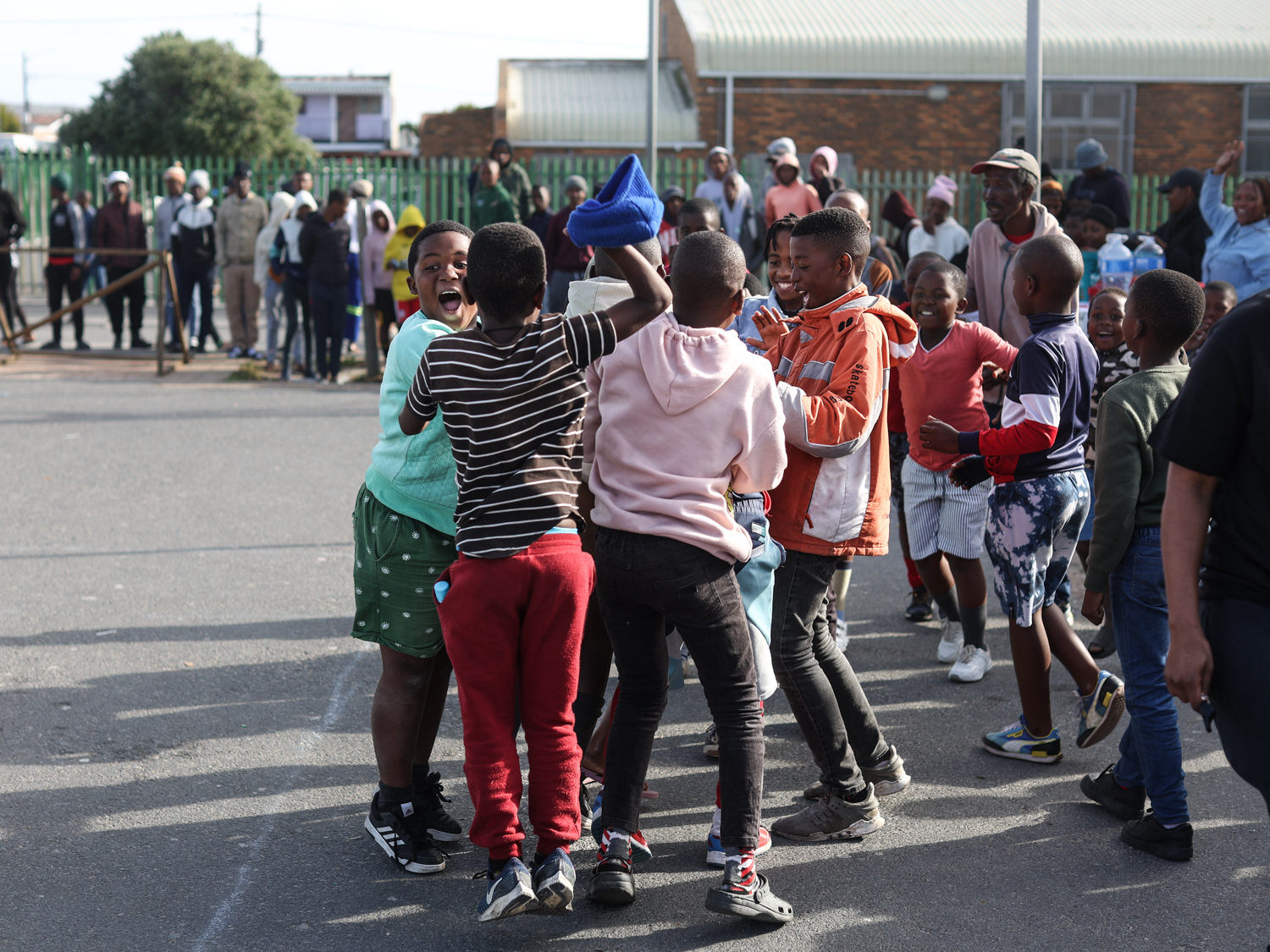

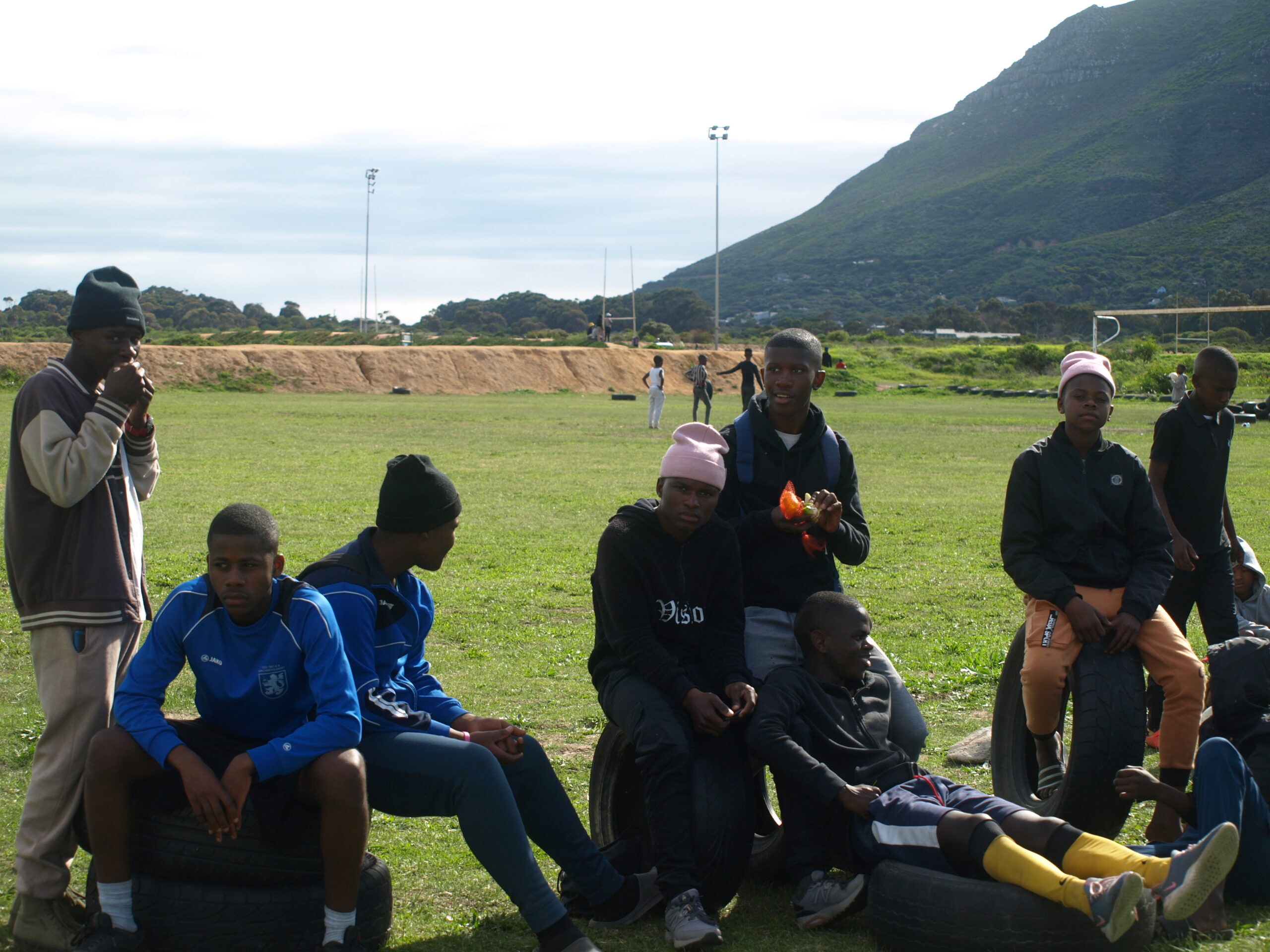
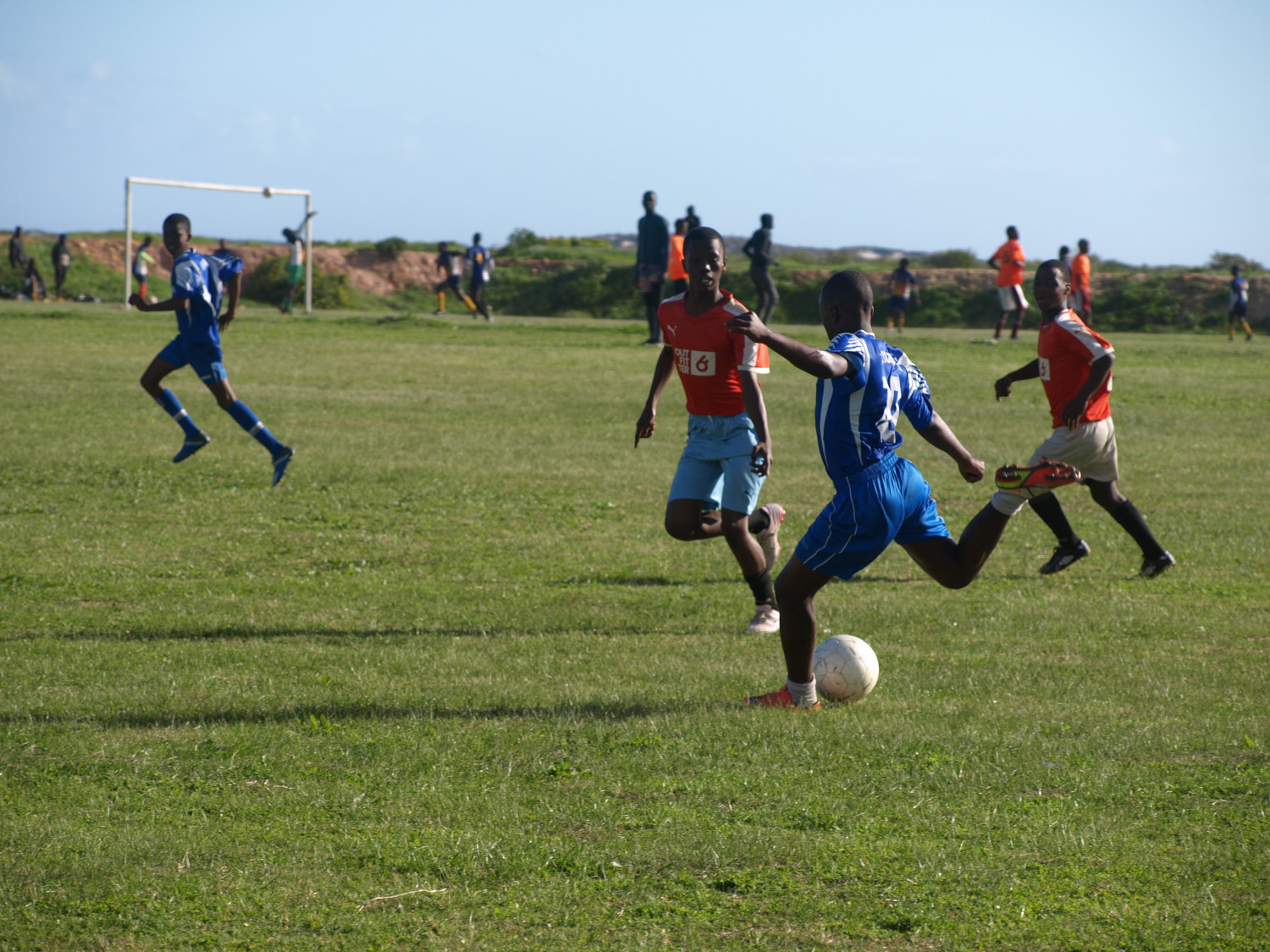
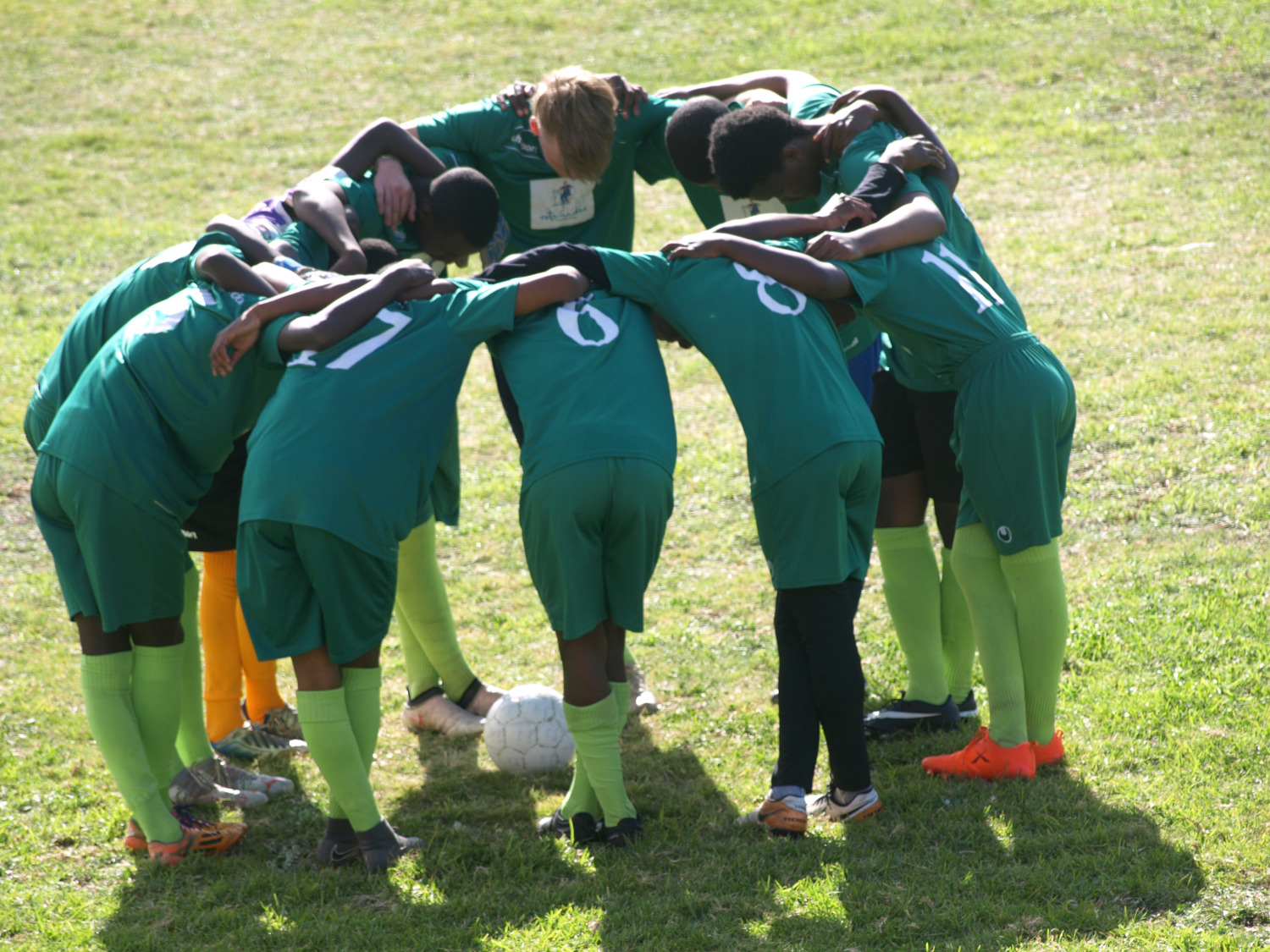
To gain a better understanding of who we are and what we stand for, here is the story of Mthandazo Ndabeni, better known as ‘Coach Thomas’ and the founder of CTYD:
Part One
“I loved playing soccer as a kid. As a teenager, however, I made some bad choices, the crux of which was drug and alcohol use. Eventually, I neglected soccer, dropped out of school, stopped going to church, and altogether found myself in a very dark place. I felt emotionally and spiritually trapped, and I desperately needed a way out. So, in December 2001, I took my first tentative step out of this entrapment: I went back to church – fulfilling my mother’s hopes for me. She and my church community continued to support me during this delicate stage, and, with their help, I finally found the strength to stop using drugs. My outlook continued to improve as I reinstated the life that my former self had thrown away. Indeed, in 2002, I went back to school, joining the Grade 12 class at Masiphumelele High School, and it was a joy to be surrounded by classmates and close friends again. Settling back into the routine of studying took some time, but I eventually reached a stage of normalcy and familiarly with my new environment. Naturally, by feeling more relaxed at school, and hearing my friends constantly talking about their favourite sports teams, I started daydreaming about soccer. I realised just how desperate I was to start playing again.
“Several months after this realisation, my close friend, Mavala, introduced me to his neighbour, Mr. Mashayela, who nonchalantly mentioned that he had a soccer ball and some spare jerseys that weren’t getting any use. Perhaps it was a coincidence, or perhaps Mavala set up the meeting especially – I’m still not sure. Regardless, this was precisely the encouragement I’d been needing to get back into the sport. So, with the jerseys and soccer ball on loan from Mr. Mashayela, Mavala and I decided to set up our own local club. In honour of our favourite international team (without paying much attention to copyright rules), we called ourselves Juventas. To our huge delight, our local community was highly receptive to our recruitment efforts, and we had no difficulty in filling every position in the team.
“Each player was focused and enthusiastic in our weekly practices, and we quickly progressed to a match-ready standard. It was at this point, however, that the cracks started to show. Though I had renounced drugs some time before, alcohol continued to be a problem for both myself and others on the team. Consequently, on our scheduled match days, the majority of the players failed to show up for the games – we were either hungover from the night before, or out drinking during that day. This, understandably, was incredibly frustrating for the players who didn’t drink, and each of them ultimately decided to quit. The club’s reputation sank to an unprecedented low, and, by August 2003, I was completely alone with nothing but a soccer ball. I felt as though I had unravelled all the progress I had made, falling once again into the all-consuming depression that I’d tried so hard to escape. Even so, I wasn’t ready to give up. I had to find a way to rebuild the club.”
Part Two
“In desperation, I asked my younger brother, Abo, to try and rally up as many friends as he could to come and play soccer. I waited anxiously for him, hoping something would come of it, trying not to sink into total despair. Then, to my amazement, squinting into the distance, I spot Abo coming into view with an entire team’s worth of players in tow. I laughed out loud at the fantastical sight; I couldn’t believe my luck. Each of the keen young players was around elven/ twelve years old – much younger than me, presenting a starkly different team to the one previous. Nonetheless, this change presented me with an opportunity: I was going to be the team’s coach. This felt like a huge responsibility, but I soon learned to relish the challenge and find joy in fostering the kids’ enthusiasm for soccer. From the sidelines, I had an incredible vantage point: I witnessed complete beginners blossoming into confident strikers; I watched acquaintances become a unified team. It felt extraordinary, and I couldn’t help but think it was meant to be.
“With so many new players and so much use, the soccer ball from Mr. Mashayela eventually became unusable, and no replacement could be found in the whole of Masiphumelele. In spite of this, the whole team showed up to the next practice session, each of them wearing a mischievous smile. Ceremoniously, one of the boys came forward, slowly revealing from behind his back an innovative solution to the problem: a basketball. It was one of the best training sessions we’d had in a long time.
“The boys showed impressive levels of commitment and adaptability, so, with help from Mavala, I organised our first Under 13’s match with another local team. This was intended to give the boys a taste of a more competitive atmosphere, and to point to areas we needed to focus on in training. In other words, it set up as a one-off event, but the boys enjoyed the game so much that they proposed the idea of playing matches regularly. I, on the other hand, wasn’t convinced by the idea. I wanted to be honest and realistic, so I explained to the boys that we were not ready for regular matches; this was an unfeasible next step considering the club’s lack of money and a proper kit. This, of course, failed to quench the boys’ enthusiasm. Despite my discouragement, they insisted that they’d happily play barefoot and in mismatched clothing, just as long as they could play. So, reluctantly, Mavala and I organised another game, and we were astounded by the boys’ 1-1 draw with a brilliant rival club.
“The boys proved me completely wrong. Kit or no kit, they were ready to play competitively. ”
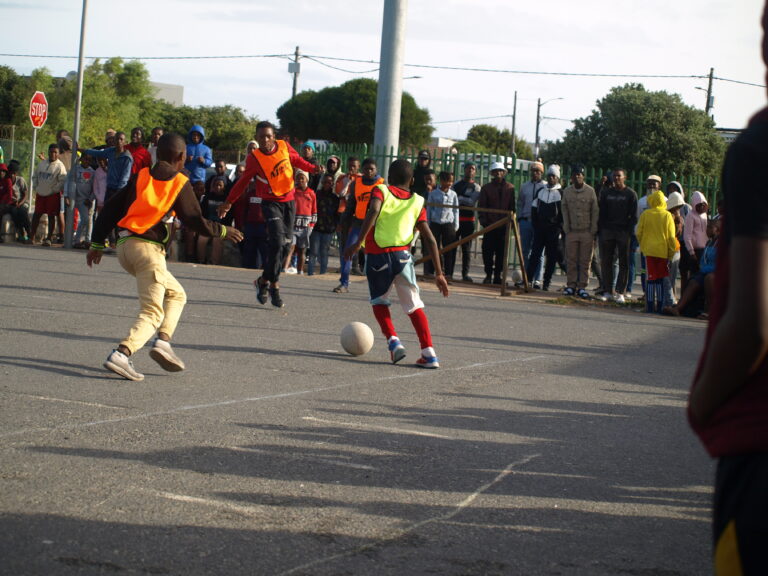
“Over the next decade, I watched the boys grow into adults, working their way up through the leagues and taking new responsibilities in their stride. With each new match, the team gradually rose in prominence in the local league and across Masiphumelele – a testament to each player’s commitment, passion, and skill. Together, we changed our name from Juventas to Young Stars Football Club, an apt reflection of the brilliant young players that I have had the privilege of coaching. As the boys-turned-adults stepped away from the club to pursue new goals, younger generations stepped into their shoes, and we now have teams playing in every league from Under 10’s to Under 18’s!
“Motivated by the success of Young Stars FC, I took to expanding our club into new domains. In early 2018, I was working for Gap Year South Africa (GYSA) – an international volunteer program based in Fish Hoek – where I met a group of boys who were learning to surf through GYSA‘s ‘Ubuntu Surfing Program’. Jessica Gould, the company’s director, couldn’t continue teaching, and it dawned on me that I had to make sure that these boys could continue learning. I mentioned my thoughts about continuing the ‘Ubuntu’ program to Grant Larson, one of the GYSA volunteers, and he was immediately pledged his support. The idea soon became a tangible reality: Grant set up a GoFundMe campaign to raise funds for wetsuits, surfboards, and transport money, and I officially took over the surfing program in October 2018. This, alongside Young Stars FC, became Masiphumelele Youth Development – as we were originally named.”
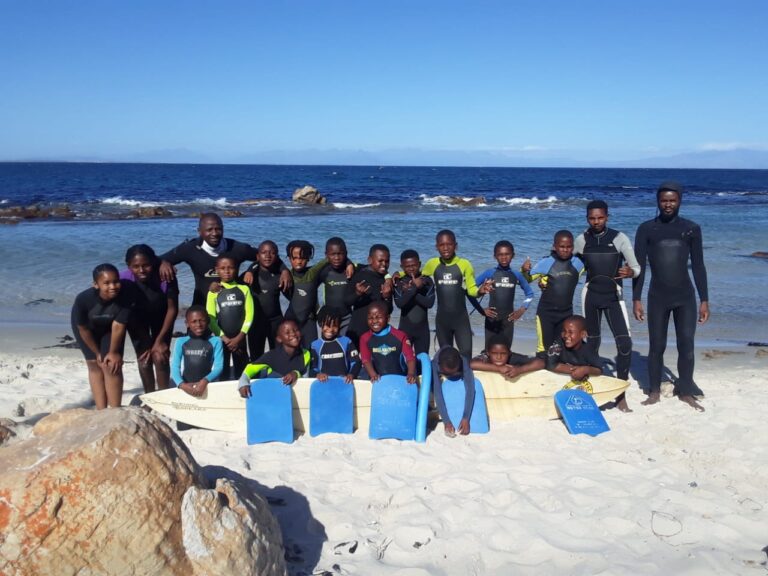
Part Five
“Since then, our organisation has undergone some major developments: we are now proudly known as Coach Thomas Youth Development; a registered non-for-profit which offers fully-coached soccer, surfing, swimming and hiking programs; ran by a dedicated team of volunteers.
“This year, we are working hard to rectify the gender imbalances across each of our programs. Girls need access to the education provided by sports and outdoor activities just as much as boys do, and we are striving to encourage children of all gender identities to sign up to at least one of our programs. Our swimming and hiking programs were developed with this goal in mind – in our local community, there is far less gender prejudice around surrounding these activities, so their implementation has served as a significant step in catering to different groups of children and diversifying participation. But this is not enough: we want to challenge the prevailing view that certain activities, such as soccer and surfing, are “boys only” sports. This is a harmful stereotype that unnecessarily creates a gender barrier to sports, and this is not what we believe in at CTYD. Our programs are open to all, and we are committed to ensuring that every child in Masiphumelele has the opportunity to learn a new skill, meet new people, and develop a healthy outlet for their energy.”
